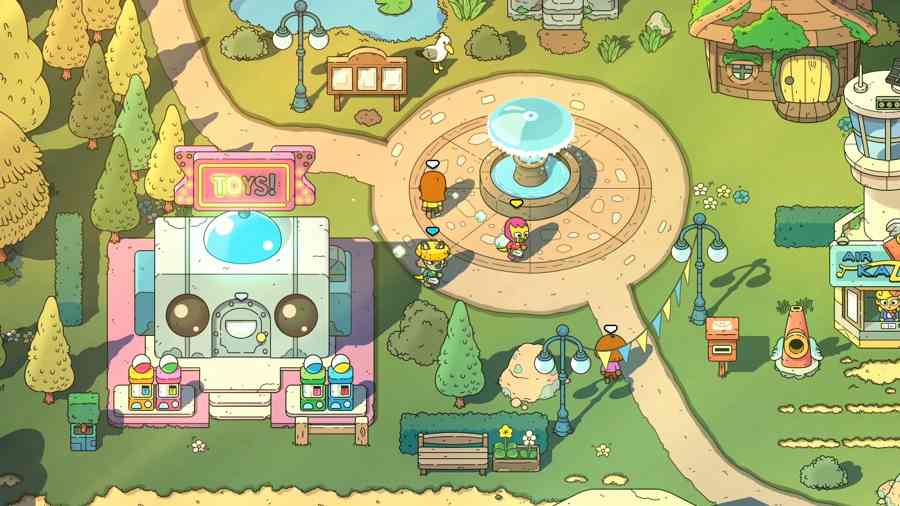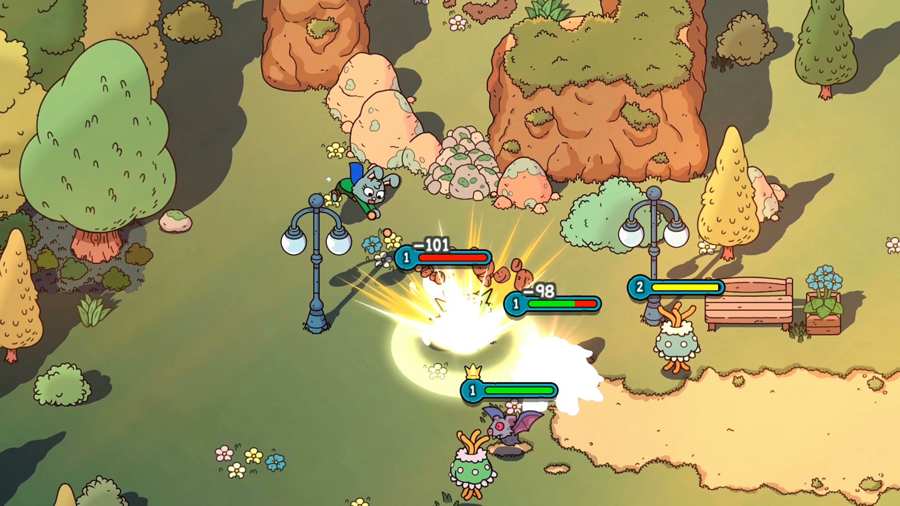The Swords of Ditto Review

Official Score
Overall - 70%
70%
The Swords of Ditto is a charming rogue-lite with a robust challenge. Fans of top-down action-adventure games won't be disappointed.
The Swords of Ditto is a rogue-lite in an ocean of very good rogue-lites. Does this Sword hold its own against other games in the genre, or is this just another dull blade? Check out our review and find out.
The Swords of Ditto Review
[line style=’solid’ top=’10’ bottom=’10’ width=’100%’ height=’1′ color=’blue’]The name “Swords of Ditto” probably makes you think that the name of your weapon is, in fact, the Sword of Ditto. Wrong. You yourself are known as the Sword of Ditto. The wielder of the blade becomes the hero of Ditto, and it is their job to try to eliminate Mormo, who has ruled for hundreds of years. Others have attempted to bring her down and have failed, and each time the Sword of Ditto fails, Mormo lords over the citizens for another 100 years. Throughout this journey you will die many, many times, and each time you will come back as a different character. Some are human, some are animals, and some are even robots. Each one of them has four days to defeat Mormo, and if they don’t, then the next hero has to try.
The Swords of Ditto plays and feels a lot of like The Legend of Zelda: A Link to the Past. There is a top-down perspective, there is the central town that you visit multiple times, and each area is made up of a tiny section that leads to another small section of the map. You also have dungeons that you must conquer to get key items that aid you in the fight against Mormo. For instance, the Golf Club lets you smash enemies into walls, stunning them so you can kill them quicker. The biggest problem is that when your character dies, they lose the item. You can buy it on the next run, but they do not come cheap.
Let’s go over the death mechanics so you can understand what I am talking about. The Swords of Ditto is a rouge-lite. Though this means character death is permanent, you do get to keep certain things on your next character, including your level, some of your cash, and some of your consumable items. Eventually, you will unlock the ability to hold onto more of your items, extend the amount of time before facing Mormo, and keep stickers for your next character. Each time you die and come back, the town changes a bit and you are a new character. It is nice to see the town aesthetic switch each time you come back, even if they are under the tyranny of Mormo.

Combat is basic at first, but gets more difficult as time goes on. You start with a sword for attacking and a roll mechanic for dodging and closing the gap on enemies. Some enemies can be attacked outright, and at the start that is viable. Later in the game, you get ones that block attacks so you can only attack during an opening. Others, like the slime, go into a pool that you can’t hit after one strike, so they need to be set on fire. There are abilities you can unlock for your sword as well such as the spin attack or charge attack. These add a bit of depth to the sword combat, but it still runs shallow.
Instead of new armor or accessories, the Sword of Ditto can equip stickers to add bonuses or buffs to themselves. As stated before, you can lose these after death which is a huge bummer. Still getting a new sticker can make all the difference in on a dungeon run. Some give raw power or defense, but others have more utility power like extra food from dead enemies or unlimited rolling. Sticker packs can be found in chests or in dungeons, and these have random stickers in them for you to equip. In total, you can equip stickers on your helmet, sword, body and arm. Specific stickers can only fit into specific slots as well, so you have to choose wisely to be the best Sword you can be.
To help out with stickers and cash, you can do side quests and run dungeons. Side quests are pretty easy for the most part: Kill X amount of enemies, retrieve X amount of items, or deliver an item to someone outside of town. There are also ongoing side quests, such as the blacksmith who can upgrade your weapon if you bring him the right stuff. Dungeons are another way to get experience and loot. These are randomly generated each time you become a new Sword. There are certain ones you have to complete the unique gear, but there are also smaller ones that can get your stickers, cash, or star shards. The randomly generated ones typically only have one or two rooms, but on occasion they can be the size of a regular dungeon and even have some minor puzzles to solve. All in all, there are plenty of side activities to do in The Swords of Ditto.

The game is not without its faults though. Though we played it on a PlayStation 4 Pro, the game suffered from some pretty bad frame drops every now and again. It is at its worst when you open a chest, which causes a ton of money to fly out. The frames dip bad, and if you do it during combat, you might get caught in a rough spot. There is also co-op, but it is only local. For someone who doesn’t play games with friends in the same house, this is a huge no-no. If you don’t care about co-op, then this isn’t an issue.
The Swords of Ditto is a charming rogue-lite with a robust challenge. Fans of top-down action-adventure games won’t be disappointed.
[infobox style=’success’ static=’1′]This review of The Swords of Ditto was done on PlayStation 4 Pro. A code was provided by the publisher.[/infobox]